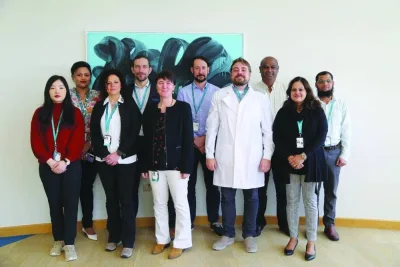Daily Covid-19 cases in Qatar have been declining steadily due to the current restrictions and the fast rollout of the vaccination programme, a senior official from the Ministry of Public Health (MoPH) said on Saturday.
“It is still too early to be sure whether we have overcome the second wave of the pandemic but if we all continue to adhere to the restrictions and follow the preventive measures, we will see a persistent fall in the number of cases. We will ease the current restrictions only when we are sure that the threat of the disease has subsided,” said Dr Soha al- Bayat, head of vaccination at the MoPH, during an interview with Qatar TV.
“All the measures against Covid-19 have led to a significant decrease in the number of people with Covid-19 in hospital. We continue to impose restrictions to curb the spread of the virus. With a new threat of the emerging Indian variant, Qatar has also introduced mandatory quarantine for travellers returning from some specific countries,” continued Dr al-Bayat.
The official said more than 1.5mn doses of vaccine have been administered since the start of the vaccination campaign.
“In Qatar, we are making great progress in the rollout of the vaccination programme, but we need at least 80- 90% of eligible people to be vaccinated in order to have maximum protection for the entire population. The vaccines do work – our data here in Qatar is conclusive. Since the beginning of 2021, we have had 1,766 Covid-19 admissions to ICU – and just 19 of these patients had been fully vaccinated. Only 1% of Covid-19 ICU admissions have been fully vaccinated against the virus. In fact, non-vaccinated people of all ages in Qatar are 91 times more likely to be admitted to ICU with Covid-19 than fully vaccinated people,” she noted.
“Around 44% of the adult population has now had at least one dose of the vaccine. More than half a million people are fully vaccinated. Every week, more than 160,000 doses are given," she explained.
Dr al-Bayat said 86% of people over 60 years have received at least one dose of the vaccine and 75% of people in this category has received both the doses. As for people over 40 years, 67% has got at least one dose and 41% both the doses.
“This is especially encouraging as almost nine out of ten people over 60 years of age have now had at least one dose. The public in Qatar have responded very well to the vaccination programme and we are not seeing any significant degree of hesitancy,” she pointed out.
According to the head of vaccination, the drive-through vaccination centres have been a huge success and so far, more than 170,000 people have visited these centres.
“To improve the user experience at the drive-through centres, we have adjusted the policy for eligibility and from now on only people getting their first dose at Qatar National Convention Centre will be eligible for their second dose at the Lusail and Al Wakra drive-through centres. Other people who receive their first dose at a primary health centre will be booked for a second dose appointment at the same health centre,” she noted.
“Receiving the Covid-19 vaccine during the holy month of Ramadan does not break a person’s fast because the vaccine is administered intramuscularly, and it is not nutritious. People should not delay their vaccination appointments during Ramadan. The operating hours of vaccination centres have been adjusted throughout Ramadan to enable convenient access to vaccination,” she explained.
The official also cautioned vaccinated people to take necessary precautions. “It is still unknown whether the vaccines prevent passing Covid-19 to other people. So, vaccinated people still have the potential to contract the infection and pass it on to others. As the vaccines aren’t 100% effective , there is still a small chance – around 5% - that vaccinated people can get re-infected and become sick. So, people are advised to continue following the precautionary measures to protect themselves as well as others,” she added.




